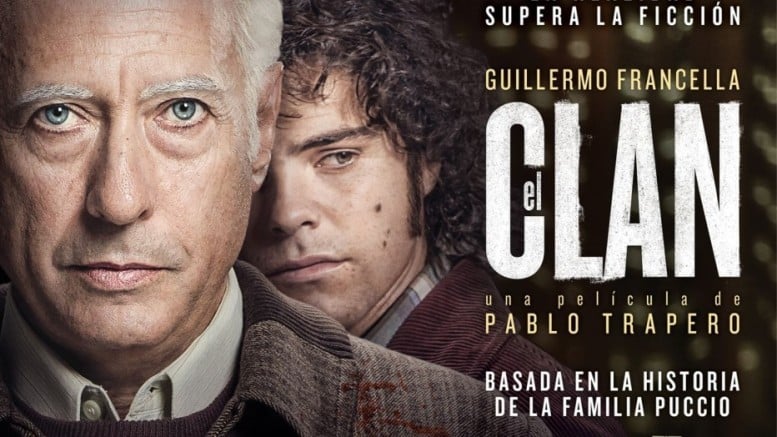
The latest from Pablo Trapero – Carancho (2010), White Elephant (2012) – tells the extraordinary true story of the Puccio family: an outwardly respectable upper-middle-class Argentinean family which was responsible for a string of kidnappings in the ’80s. The Puccio case enthralled and divided a nation transitioning from years of military dictatorship, the family’s double life seeming to stand for the treachery and complicity of those dark years. The Clan is that rarest of thing: a film which won the Silver Lion at the 2015 Venice Film Festival and was selected as Argentina’s entry for Best Foreign Language Film at the 88th Academy Awards which is also a box office smash; ranking only behind Trapero’s Nuevo Cine Argentino cohort Damián Szifron’s Wild Tales (2014) as the top grossing Argentinean film of all time. The Clan has proven to be an act of national catharsis.
Equal parts domestic drama, social history and crime saga, The Clan dispenses with the social realism of Trapero’s previous output in favour of a conspicuously cinematic style that draws heavily on the Scorsese aesthetic in its long Steadicam tracks, jump cuts and pop soundtrack; but also Bunuel/Fellini in its exploration of family dynamics; and Mann/De Palma in its slick deconstruction of crime movie tropes. And therein lies the fundamental problem with The Clan; the viewer is whisked along by the technical élan of its execution, but on further reflection it feels like baroque homage which does little to enhance story or performance. The use of an upbeat ’80s pop soundtrack is there to serve a function, to operate as a chilling counterpoint to the film’s dark subject matter, but its sheer volume – in both senses – feels at times like being trapped in a giant jukebox. Had the music cues been reserved for a few pivotal scenes, this counterpoint would have been more striking.
What is beyond dispute is the power of Guillermo Francella’s central performance as the Puccio patriarch. Francella is known chiefly as a comic actor, and much like the musical selections, Trapero’s casting strives to subvert the expectations of Francella’s avuncular image. Francella is a truly sinister presence as Arquímedes Puccio; his outward benignity belying an inner steel; the depths of which are hinted at in his unblinking, predatory gaze. It is a masterfully controlled performance in which every facet – look, gesture, posture, breathing pattern – is carefully designed to convey a veneer of probity and self-control; a tour de force in minimalism which stands in contrast to the surrounding film’s stylistic excesses. The Clan‘s most devastating moments are not the brutal depictions of kidnapping and torture, but the scenes in which Arquímedes is ensconced in the motions of domesticity, assaying the ways in which the family functions like the state in instilling its own coercion.
Trapero has found a context in which to explore the legacy of the junta and its Dirty War, using the Trojan horses of nostalgia and propulsive pacing. It is an approach which has clearly spoken to Argentinean audiences; but detached from these historical resonances, The Clan comes across as a stylish piece which struggles to balance the contrasting strands it comprises. Trapero gives free rein to every filmic device in order to communicate the breathless thrill of the crime; while his strenuously researched screenplay – written with Julian Loyola and Esteban Student – seeks to honour the memory of the victims. These contradictory impulses sit uneasily together; with Francella at the centre, straining to hold it all together like the imperturbable head of the Puccio clan. The Clan finds Trapero moving towards a more crowd-pleasing medium without entirely abandoning the socially conscious tenor of this earlier work. But Trapero can never quite outrun the shadow of his influences, and the déjà vu becomes jarring. In this instance, the story would have sufficed.
Follow Daniel Palmer on Twitter at @mrdmpalmer
Filed under: Film, TV & Tech
Tagged with: Argentina, Best Foreign Language Film, Guillermo Francella, Silver Lion

Comments